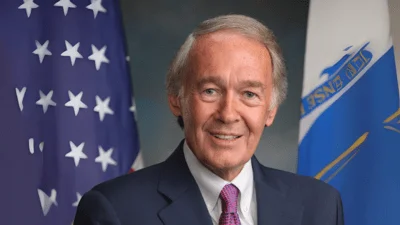The Congressional Record is a unique source of public documentation. It started in 1873, documenting nearly all the major and minor policies being discussed and debated.
“ICC TERMINATION ACT OF 1995” mentioning the U.S. Dept. of Transportation was published in the Extensions of Remarks section on pages E2184 on Nov. 15, 1995.
The publication is reproduced in full below:
ICC TERMINATION ACT OF 1995
______
speech of
HON. THOMAS W. EWING
of illinois
in the house of representatives
Tuesday, November 14, 1995
The House in Committee of the Whole House on the State of the Union had under consideration the bill (H.R. 2539) to abolish the Interstate Commerce Commission, to amend subtitle IV of title 49, United States Code, to reform economic regulation of transportation, and for other purposes:
Mr. EWING. Mr. Chairman, I want to commend you for moving H.R. 2539, the ICC Termination Act of 1995, forward in a timely fashion. As Members may be aware the Interstate Commerce Commission [ICC] will be terminated on December 5 of this year, and without new legislation in place, the existing cumbersome and obsolete 19th century ICC statute will remain on the books.
While there is solid bipartisan support for termination of the ICC, the difficulty of dismantling 100 years of transportation and commercial law has certainly become evident. However, in dismantling the ICC and moving its remaining critical functions to the U.S. Department of Transportation, care must be taken to protect vulnerable interests, like captive shippers.
The provisions of the bill which encourage class II railroads to purchase lines that would otherwise be abandoned by larger class I railroads must be retained or captive shippers could see their service disappear entirely. Unfortunately, adoption of Representative Whitfield's proposed amendment would upset the careful balance in the bill and could discourage class II railroads from investing in lines scheduled for abandonment. Congress should not impose an unfunded mandate on class II railroads and create an environment where essential railroad service is lost because the costs of assuming existing labor agreements and severance benefits is prohibitive. For this reason, I urge my colleagues to support the committee language and reject the Whitfield amendment.
Mr. Chairman, I also appreciate your willingness to address other issues of importance to American agriculture and for working with members of the Transportation and Infrastructure Committee who represent agricultural districts. Agriculture is heavily dependent upon rail service to move products to market. For many rural and smalltown farmers there is only one grain elevator and one rail line available. The ability to move commodities in a timely fashion is critical to remaining in business. When faced with these monopolistic circumstances some reasonable regulation is essential.
I am pleased the legislation before the House today clarifies the exemptions language in the bill, grants the adjudication panel the authority to deny abandonments, includes contract summary filing language, restores investigation authority, and restores the existing 20 days rate-change-notification requirement. However, I remain concerned about potential railcar supply shortages and the percentage of rolling stock that could be contracted out under the common carrier provisions of the bill.
Railcar shortages boost the price farmers and elevators must pay to move crops to market, thereby lowering the amount farmers receive for their crops. In fact, Midwestern agriculture is already facing acute railcar shortages resulting from increased demand, instability in the railroad industry caused by proposed mergers, and high barge shipping rates. While I am not advocating excessive regulation to protect agriculture, the final ICC termination legislation should not worsen the situation unnecessarily.
Mr. Chairman, I plan to continue working with you on this issue and I urge you to consider accepting the common carrier language contained in the Senate's ICC termination bill when this legislation goes to conference.
Again, Mr. Chairman, I want to thank you for the leadership you have demonstrated in working with Members who represent agricultural interests. Although H.R. 2539 is not perfect, and some additional work is necessary, I urge my colleagues to support passage of H.R. 2539.
____________________








